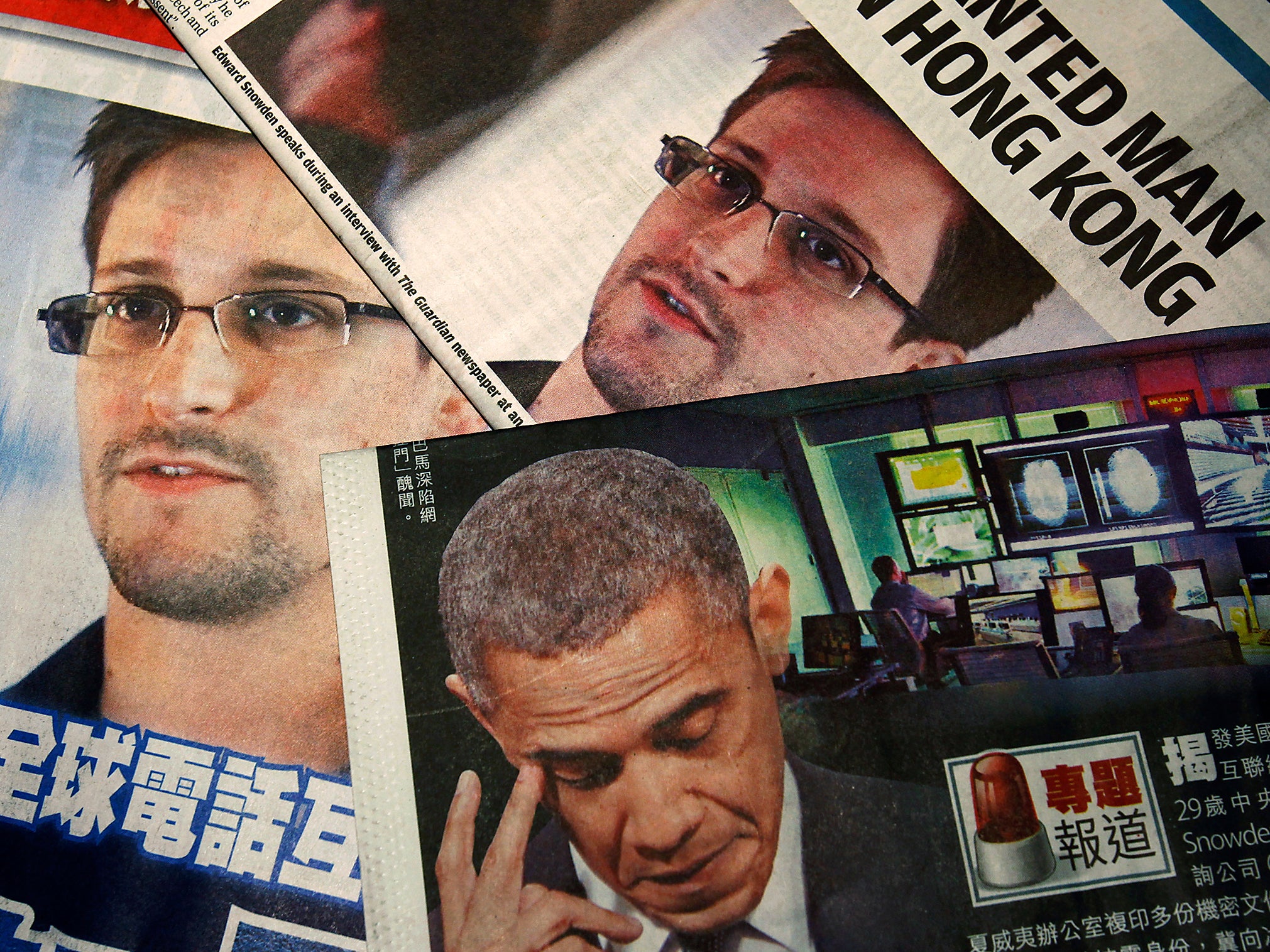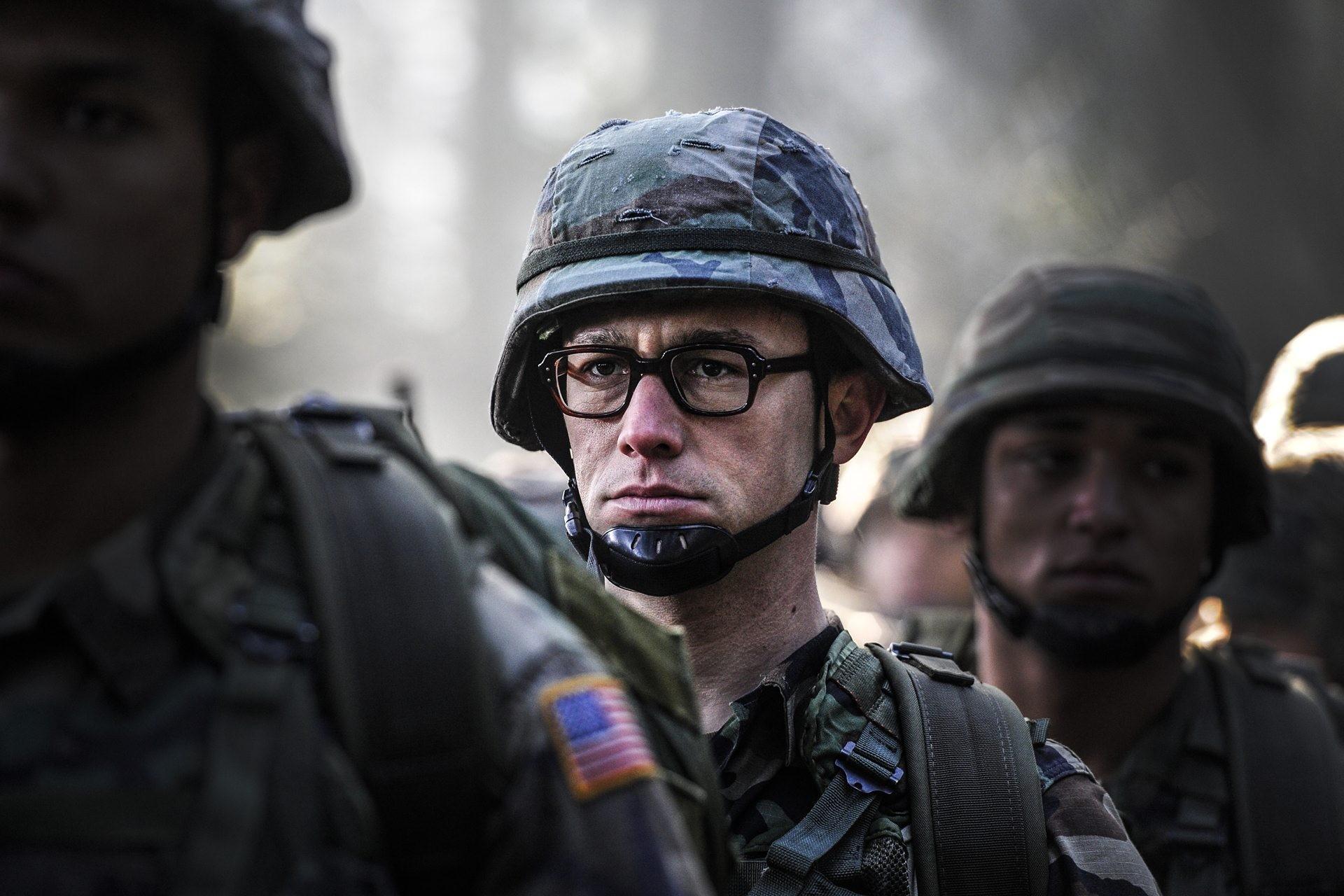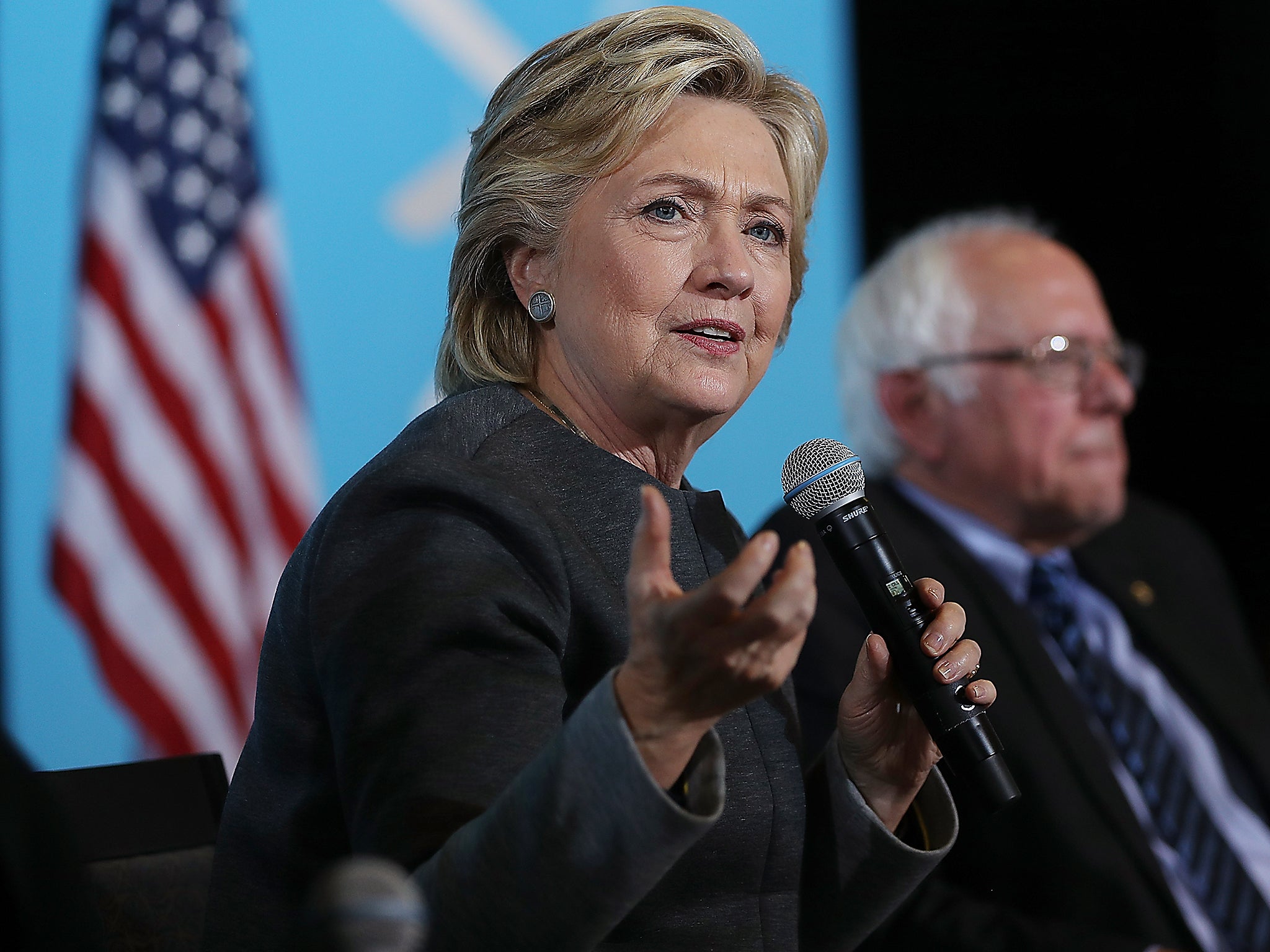Oliver Stone’s Snowden puts the spotlight back on the NSA
The American film director has long been known as the official agent provocateur of Hollywood and his new film ‘Snowden’ highlights a realm of dark political possibilities the world may one day have to contend with

Your support helps us to tell the story
From reproductive rights to climate change to Big Tech, The Independent is on the ground when the story is developing. Whether it's investigating the financials of Elon Musk's pro-Trump PAC or producing our latest documentary, 'The A Word', which shines a light on the American women fighting for reproductive rights, we know how important it is to parse out the facts from the messaging.
At such a critical moment in US history, we need reporters on the ground. Your donation allows us to keep sending journalists to speak to both sides of the story.
The Independent is trusted by Americans across the entire political spectrum. And unlike many other quality news outlets, we choose not to lock Americans out of our reporting and analysis with paywalls. We believe quality journalism should be available to everyone, paid for by those who can afford it.
Your support makes all the difference.The US election is imminent. It pits a dangerous demagogue in Donald Trump against an establishment candidate in Hillary Clinton. The list of those victimised by Trump is dwarfed only by his detractors.
On the campaign trail, Trump has managed to insult women, Hispanics and Muslims just to name a few groups. Yet Clinton hardly arouses the enthusiasm of voters. Many feel she has been co-opted by Wall Street and that she is a foreign policy hawk.
The Wikileaks revelations confirmed that the leadership of the Democratic National Committee worked against Bernie Sanders in order to secure Clinton the nomination. I am wondering what Oliver Stone makes of it all. But, getting hold of Stone, at several removes, proves to be difficult. You could say he is almost as elusive as the subject of his latest movie – Snowden.
Stone is in London for the UK premiere at the BFI London film festival. It was only a matter of time before the story of the most important whistle-blower of the 21st century was turned into a Hollywood film. The Edward Snowden story and Oliver Stone would appear to be a marriage made in heaven. And if Snowden did not exist then he would need to be reimagined as the protagonist in an Oliver Stone production – the lone, principled hero up against the powers that be.
Stone has been the official agent provocateur of Hollywood for decades. At 70, his enfant terrible days may be behind him. Yet whilst others might see out their retirement in a leisurely manner, Stone has been prolifically churning out one film after the other. He would certainly be entitled to sit on his laurels having directed some of the most outstanding films of the 1980s and 1990s. Stone’s films chronicle an alternative history to the official version.
The multi-Oscar winning Platoon laid out the Vietnam War in all its horror based on the young Stone's own experiences as a veteran. Wall Street was a savage indictment of unregulated capitalism. JFK created a montage of documentary, television and reconstruction footage positing that the assassination was a coup d'état engendered by the CIA. Natural Born Killers satirised the modern cults of celebrity, violence and sex. In the 21st century, his movies have been coolly received.
Stone had his work cut out in the wake of Laura Poitras’s real-time documentary Citizenfour. This astonishing portrait captured the heady days in which Snowden divulged the leaks to investigative journalists Glenn Greenwald, Ewen MacAskill and Poitras. He managed to evade capture before being stranded in Russia. Fortunately, Snowden marks a return to form.
In recent years, Stone has successfully turned to the documentary form, which arguably complements his subject matter best. Most notably, he co-wrote The Untold History of the United States with the historian Peter Kuznick. Stone turned it into a ten-part documentary examining the secret history of the US empire. Stone has been lobbing molotovs at the US establishment for several decades. For some reason, they are still letting him make movies. Until now perhaps.
As he pointed out to The Independent in a recent interview, the CIA and Pentagon have been funding and collaborating on Hollywood movies for decades. Noam Chomsky makes the same point in his seminal work Manufacturing Consent. The glamour of Top Gun made a superstar out of Tom Cruise with its Bruckheimer-Simpson high concept style. And the funding and support from the Pentagon certainly did not hurt.
Suffice to say that Platoon did not obtain Pentagon script approval. The Snowden story is a natural fit in the Stone oeuvre. The dark, shadowy forces of the “military-industrial complex” building a big brother mass surveillance state. Rolled in with the story of David against Goliath. The subject matter is so epic that it lends itself to the big screen treatment. But the process of bringing the Snowden story to the screen has been anything but straightforward.
The project was turned down by one studio after the other. Stone felt that such decisions may have been politically motivated as he told The Independent’s Kaleem Aftab recently. The live subject was simply too hot to handle for film studios as an arm of a transnational corporation compromised by links with government. There are evident parallels between Stone and Snowden. Both came from conservative backgrounds with no hint of firebrand tendencies. They both signed up to serve their country. Stone voluntarily enlisted to fight in the Vietnam War. Snowden, who hails from a military family, worked for the National Security Agency (NSA) and CIA. Yet these formative experiences led to both becoming disillusioned with US policies. I ask Stone if these parallels drew him towards making the film. He answers, “I suppose it did but that wasn’t the prime motive”.
There are indeed limits to such parallels. Snowden himself leads an almost puritanical lifestyle with no drinking or smoking. Whilst Oliver Stone exudes an ursine, testosterone machismo in the mould of Ernest Hemingway or Norman Mailer. He is the embodiment of the creative male artist as tour de force.

Joseph Gordon-Levitt’s impressive performance, as the eponymous lead, is pitch perfect. It captures Snowden's temperament – the Quiet American school of understated, unassuming, restrained heroism. Gordon-Levitt has more than a passing resemblance to Snowden and he may well be an early front-runner for the Oscar.
Stone was really attracted by the urgent issues thrown up. He tells me, “This is a major issue. . . It is going on now… the more I found out about it from Mr Snowden, the more I think it is urgent for people to hear”. Snowden refocuses the spotlight on the NSA revelations. A recap is needed for our amnesiac times. Many have long suspected the intelligence agencies of collecting mass data. Nevertheless, a few years ago, you would have been labelled a conspiracy theory anorak if you suggested some of the things that we now take for granted. Live video feeds using the camera lens of a device, switching on a turned off mobile, smart televisions recording conversations in your lounge.
The programs used for mass surveillance are the stuff of sci-fi. They include XKeyscore, which sweeps up metadata from vast internet databases. Whilst the PRISM programme relied on the cooperation of the big tech companies to tap into their networks without the consent of customers. The image of Apple, Google and Facebook as the shiny, happy face of capitalism has been tarred.

Another programme called Tempora gathers masses of phone and internet traffic by tapping into fibre-optic cables. The film alludes to the revolving door between technology companies and the military. It appears that many devices are deliberately designed to enable back-door accessibility. The film successfully translates these complex concepts for a mass audience. It has the feel of a 21st century movie made in the digital era. As Stone puts it, “We could visualise in ways perhaps that helps people, this is a very technical message and I think a lot of the details were lost when they first came out.”
The narrative follows the trajectory of Snowden evolving from conservative to whistleblower. It makes for a compelling dramatisation arc. He effectively starts out as a pallid, techno geek producing computer code for the NSA and enjoying the cachet of having top-level security clearance. Gradually he realises that the government is spying on everyone and everything from emails and phone records to foreign politicians, trade secrets and health records.
In the movie, he is appalled to find that one of his concepts – nicknamed “Epic Hurricane” – is being used for drone bugsplat assassinations. He undergoes the dawning realisation that something has gone very wrong with the state of the nation. The chilling, inexorable moment comes when he decides that he can no longer keep his head down.
A scene invoking the Nuremberg trials acts as a stark reminder that following orders is not an acceptable excuse for immoral actions. His sinister supervisor Corbin O’Brian, played by Rhys Ifans, utters the line out of Ayn Rand's Atlas Shrugged – the novel idolised by free market neoliberals – one man can “stop the motor of the world”. Ironically, this turns out to be Snowden's destiny. Yet it comes at great personal cost. The existential choice is between pragmatism and idealism.

Between a comfortable future with his girlfriend Lindsay Mills (Shailene Woodley) in his homeland on a cushy six-figure job. Or the uncertainty of being a fugitive from the most powerful government on Earth. He must sacrifice everything for his principles, including potentially his life once he is charged under the Espionage Act. But boy, are we glad that Snowden made the choice he did.
The backdrop has been the insidious erosion of civil liberties post 9/11. This has included arbitrary detention without trial, torture and extraordinary rendition to CIA black sites. Globally, there is a convergence of authoritarian rule endangering liberal democracy. The Sino-Russian model has been imported into Eastern Europe and Turkey. France is in an indefinite state of emergency. And the US election has thrown up a proto-fascist in Donald Trump.
It seems that we are disturbingly on the road to an Orwellian Big Brother world. The film references its literary heritage with a scene in which Corbin O’Brian (in homage to the character O’Brien in George Orwell’s novel 1984) appears on a giant screen in a video call to Snowden. The terrifying thing is how complacent we have all become.
The film challenges this complacency head on. It dismisses the “bullshit line”, favoured by the establishment, that people, who have nothing to hide, should not worry. “Everyone has something to hide,” remarks Snowden in the film. Snowden visually references President Kennedy in a couple of shots. This suggests that his ghostly presence, hovering over the movie, is a reminder of what can happen when you confront power.
JFK is admittedly my personal favourite out of the Stone oeuvre. Arguably Stone’s magnum opus, it details the thesis of a massive conspiracy behind the JFK assassination. The opening of JFK highlights Eisenhower’s coining of the phrase “military-industrial complex” in which the outgoing president warns that it imperils our liberty. The Snowden revelations would appear to be the nightmare incarnation of this haunting prophecy. I can’t help but notice the parallels in the same powerful interests at work.

Stone answers that, “when the individual goes up against the state, he finds himself pretty lonely”. And Snowden really is alone. He is up against the might of the Atlanticist defence establishment. For many, Snowden’s actions are heroic and patriotic. However, as far as the US establishment is concerned, he is a traitor. Former CIA director James Woolsey has said that he should be, “hanged from the neck”. It is certainly disquieting that this is how we as a society treat whistleblowers.
As Stone puts it to me, “they went after the messenger to kill the message so we're trying to preserve the message”. I wonder how Stone feels about the health of American democracy as a filmmaker, who has spent an entire career charting the state of the nation. The answer lies with Snowden’s words cited in the film. All it will take is for a leader, who comes in and “flicks the switch”. In other words, the infrastructure is in place for the transition to a totalitarian state.
A breathtaking montage concludes that terrorism is the excuse; the reality is economic and social control. This sequence demonstrates how a client state, such as Japan, is firmly kept under the thumb of the US through the use of economic, political, diplomatic and covert tools. It purports that, in the nuclear scenario of Japan going rogue and deserting the US, the NSA can shut down the power grid of the entire country. This is certainly in keeping with the world view presented by Wikileaks.
In the closing sequence, Edward Snowden himself makes a poignant appearance. This cameo effectively acts as a stamp of approval. So how will the Snowden story end? A pardon from President Obama does not appear to be forthcoming. Stone, disillusioned with Obama, has scathingly lambasted him as the peace President, who has bombed several Middle Eastern countries.
The bigger question is how this story ends for the rest of us. One is reminded of the Halford E Luccock quote that “When and if fascism comes to America it will not be labelled “made in Germany”; it will not be marked with a swastika, it will not even be called fascism; it will be called, of course, Americanism”.
Oliver Stone’s movies explore the collective national traumas of modern US history. They highlight the dark, political realities and unpalatable home truths about the nature of our societies. Snowden is the latest, glorious addition to Stone's body of work. One can only hope that it will shake us out of our stupor.
Youssef El-Gingihy is the author of ‘How to Dismantle the NHS in 10 Easy Steps’ published by Zero Books
Join our commenting forum
Join thought-provoking conversations, follow other Independent readers and see their replies
Comments